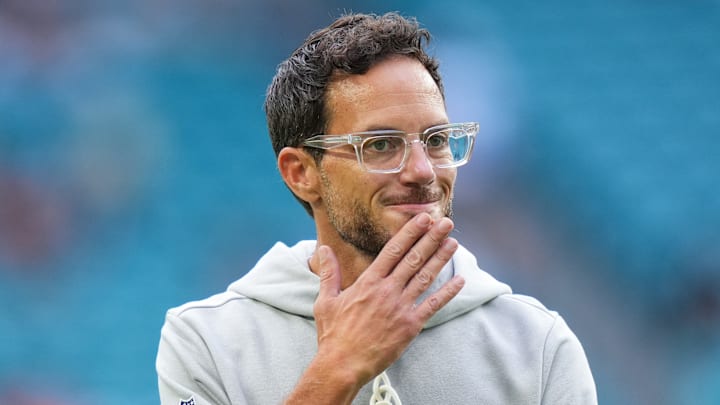It was just one week. It was only the first game.
That's what the defenders will say. But the Miami Dolphins' Week 1 loss to the Indianapolis Colts to start the 2025 NFL season proved all the naysayers correct in their preseason analyses.
The truth is that this wasn't just one week or one game. This is Year 4 of the Mike McDaniel era and the sixth with quarterback Tua Tagovailoa. Both have received extensions in some form during their time in Miami, yet neither has netted the results deserving of those extensions.
Dolphins are proving everyone right for all of the wrong reasons
The peak of this team was in 2022 and 2023, neither of which resulted in the Dolphins winning a playoff game. Miami's winless playoff drought will hit the 25-year mark in late December, and based on what we saw in Indy, it's safe to assume that will extend to at least one more year through 2026.
Heading into this season, the Dolphins were considered by some to be a fringe playoff team, as they have been over the past few years. ESPN's Peter Schrager even went as far as putting the Dolphins into the No. 7 seed of the AFC playoffs in his latest preseason prediction over the weekend.
However, a majority of analysts and national media outlets predicted this season to be a regression year, with McDaniel very much on the hot seat.
Pro Football Talk went further than most, labeling the Dolphins a bottom-five team in its latest power rankings. Dolphins fans took great exception to that, but PFT would have all the right in the world to list Miami dead last after Week 1.
Meanwhile, other outlets predicted the Dolphins to finish dead last within the AFC East and/or with a record of 6-11 or worse.
That's because we've had expectations with this team before when they were better, only for them to fall at the end of the season and disappoint. The Dolphins lost several key players this offseason, even if it felt like addition by subtraction with a few of them. And with an unproven quarterback and head coach, the writing was on the wall for a tough 2025 season. Still, the belief of "changing the culture" left some convinced that this was the turning point.
Week 1 was an indication that it has not. Miami's offense fell dramatically in 2024 and looked to take a step back even further in Indianapolis. In fact, if it wasn't for a great play made by De'Von Achane on the team's lone touchdown, we'd be talking about a shutout against a middling team like the Colts.
Meanwhile, the Dolphins' secondary that everyone was worried about, except for those inside the organization, didn't ease those concerns. The team overall looked undisciplined, unprepared, and oftentimes...uninterested. They may have told us that the culture has changed in Miami, but it sure didn't look like it.
The reality is that the moves the Dolphins made this offseason are the ones that teams make when they are rebuilding. And an argument could be made that they were good moves in that regard -- shedding contracts and players that don't want to be here, a strong draft class, building draft capital, etc.
The problem is, however, that those who made the moves shouldn't be in the process of helping the team rebuild. McDaniel has worn out his welcome with the fan base, and general manager Chris Grier should have been given his walking papers years ago. Yet, they remain in their respective roles at the behest of Dolphins owner Stephen Ross.
Many Dolphins fans look at this trio as the core issue in Miami, and several national media outlets have caught on. And until there is a true reset in South Florida, pundits and analysts will continuously and accurately depict the Dolphins among the NFL's bottom dwellers.
